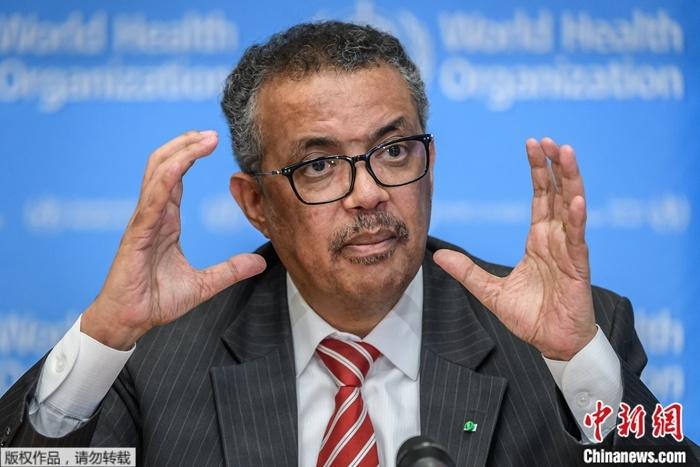China News Service, October 29. According to the United Nations website, the World Health Organization launched a new strategy on the 28th, calling on the international community to raise US$23.4 billion in funding to solve the problem of global access to the new crown vaccine and detection and treatment of the new crown virus. Inequality.
Since April 2020, the "Acquisition of New Crown Tools Acceleration Program" initiated by WHO and partners has supported the fastest, most coordinated and most successful global effort in history to develop tools to fight disease.
The "Strategic Plan and Budget" released by WHO for this plan on October 28 will help high-risk countries obtain anti-epidemic tools from now to September 2022.
The World Health Organization said that funding for the Acceleration Program for Access to New Crown Tools is expected to help prevent at least 5 million potential additional deaths, save more than US$5.3 trillion for the global economy, and accelerate the end of the new crown epidemic.
Data map: Tedros Adhanom Ghebreyesus, Director-General of the World Health Organization.
Potential has not yet been realized
Through the new crown vaccine acquisition mechanism, the "Acquisition New Crown Tool Acceleration Program" has so far provided 425 million doses of vaccine to 144 countries.
Nearly 130 million test kits were also distributed, and the supply of oxygen, personal protective equipment and treatment facilities was increased.
However, WHO Director-General Tedros Adhanom Ghebreyesus said at a regular press conference in Geneva on October 28: "So far, due to severe supply and funding constraints, the acceleration plan for acquiring new crown tools has failed to realize its potential. "
He warned that unless the epidemic is brought under control everywhere, the virus will mutate and continue to spread everywhere.
"The high transmissibility of delta mutation confirms what we have been saying: vaccines alone cannot end the pandemic. We now need all the tools-vaccines, testing, treatment, personal protection and public health measures-to fight the new coronavirus. Save lives and livelihoods."
Cases on the rise in Europe
The surge in COVID-19 cases worldwide is a reminder that this pandemic is far from over.
We have witnessed the first increase in new confirmed cases in two months. This is largely due to the continued increase in cases in Europe, which exceeds the decline in other regions.
Tan Desai said that the main reason why the epidemic continues is that the unequal distribution of anti-epidemic tools still exists.
As of the 28th, there were 244.8 million confirmed cases and 4.9 million deaths worldwide.
He told reporters: "If the 6.8 billion doses of vaccines vaccinated around the world can be fairly distributed so far, we can now achieve the 40% target we set in each country."
Six months after Paraguay launched the new crown vaccination campaign, 70% of the country's population has received a second dose of the vaccine.
Appeal to the leaders of the Group of 20
Before the G20 summit in Rome this weekend, Tedros issued an appeal to the world's major industrial countries because these countries "have the ability to make the political and financial commitments needed to end the epidemic and prevent future crises."
He urged leaders of all countries to provide funding for the "Acquisition of New Crown Tools Acceleration Program" and support the development of a legally binding global pandemic prevention and response treaty.
He further called for the establishment of a health threat financing committee, supported by the financial intermediary fund established by the World Bank.
Prove by action
The United Nations and the International Red Cross and Red Crescent Society issued a joint statement on October 28 stating that although all countries have vowed to achieve global unity, the goal of a "people's vaccine" against the new crown epidemic is far from being achieved.
The statement pointed out that “when it comes to the equitable distribution of vaccines, profits and short-sighted vaccine nationalism continue to override human nature.”
The two institutions once again issued a joint appeal before the G20 summit in Rome to achieve global vaccine fairness.
"Now is the time to use actions to prove the lofty ambitions."
Humanitarian responsibility
Although about 48% of the world’s population has received at least one dose of the vaccine, in low-income countries, this number has plummeted to 3%, and in countries suffering from humanitarian crises, the situation is “especially worrying”.
The statement said, “Ensuring that lives around the world are protected, not just in a few countries that have the ability to purchase protection, is a humanitarian priority and our shared responsibility.”
The two agencies issued a five-point appeal to governments, partners, donors, the private sector and other stakeholders, urging them to expand the supply of the new crown vaccine and support the new crown vaccine acquisition mechanism, including through donations, increased funding and support , So that the vaccine can benefit everyone.
The statement called for strengthening vaccine production and distribution capabilities, especially in low- and middle-income countries, and speeding up technology transfer.
The statement also urged manufacturers to remove all obstacles and allow humanitarian agencies to obtain vaccines.

